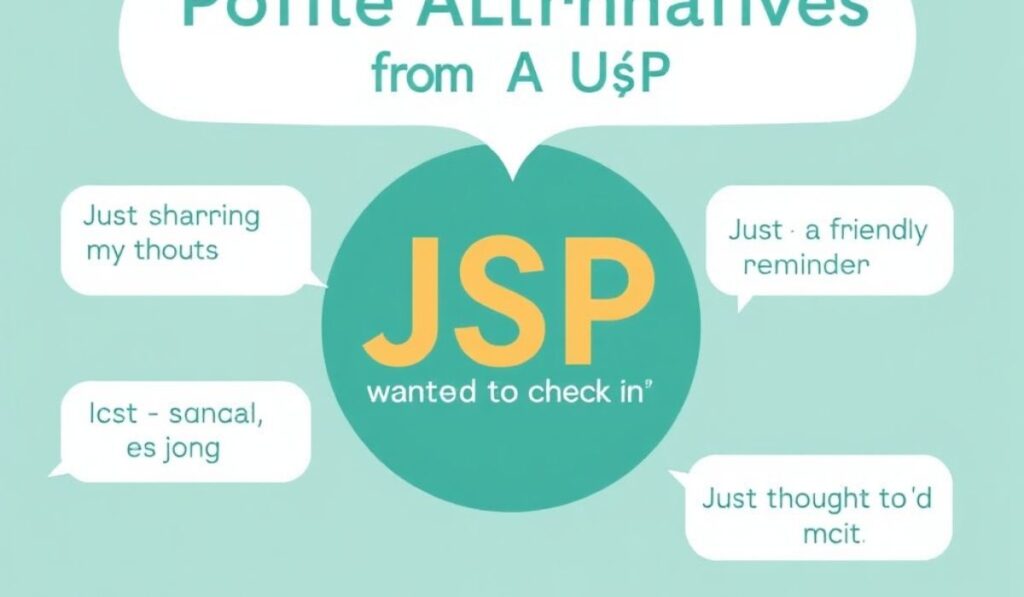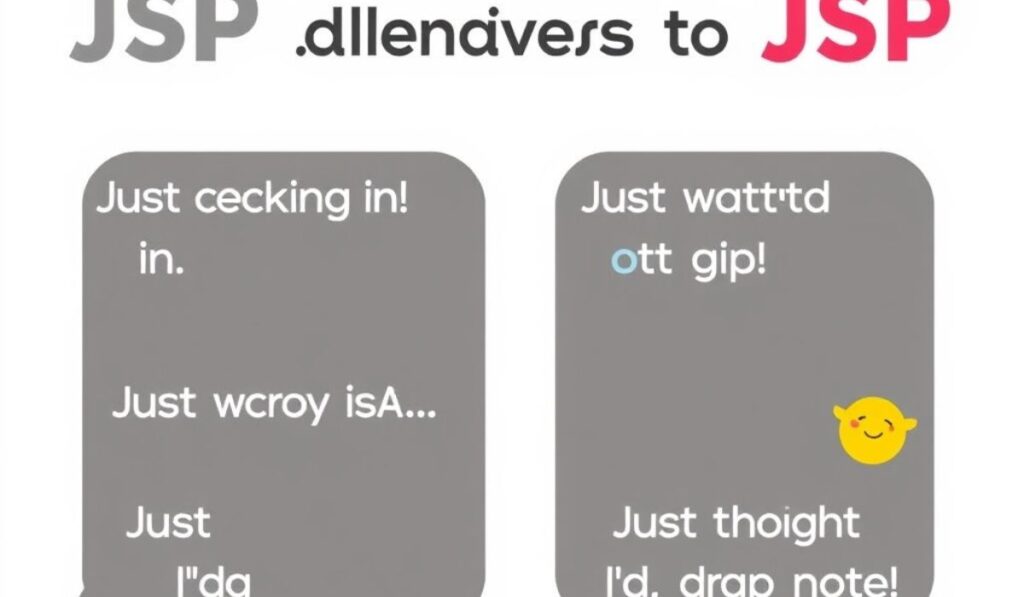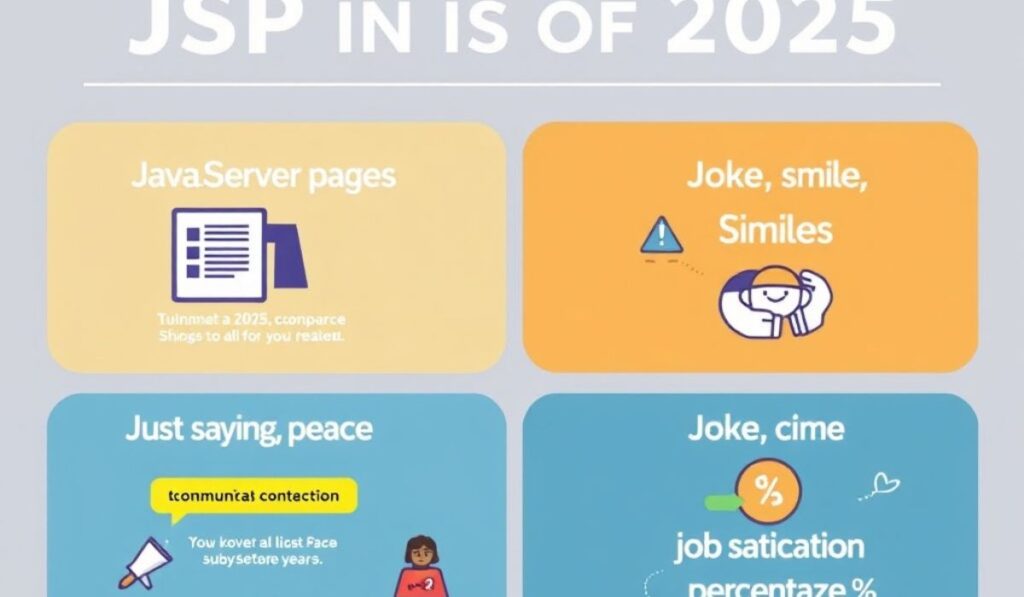In 2025, “JSP” has become a popular abbreviation in digital conversations, especially across social media and messaging platforms. While its meaning can vary depending on context, it’s often used as a shorthand for specific phrases or expressions that make chatting quicker and more casual.
Understanding what “JSP” means and how to use it effectively helps keep your messages relevant and in tune with modern communication trends.
Whether you’re texting friends, commenting online, or engaging in group chats, knowing the right usage ensures your conversations feel natural, clear, and up to date with current slang.
What Does “JSP” Mean in Text?
In texting and online conversations, “JSP” is a shorthand expression that typically stands for “Just Saying, Pal” or “Just Saying, Please,” depending on the context. It’s often used to add a casual, friendly, or slightly cheeky tone to a statement, making it feel less formal and more conversational.
In some cases, “JSP” can also have niche meanings in gaming, fandoms, or online communities, so the exact interpretation depends on the audience and setting. Knowing its variations helps you avoid misunderstandings and keeps your communication aligned with the tone you want to convey.
:
- 💬 Just Saying, Pal – A lighthearted way to share an opinion or remark.
- 🙏 Just Saying, Please – Used politely when making a request.
- 🎮 Game or forum slang – May refer to usernames, guilds, or communities.
- 🤝 Casual connector – Softens a statement to avoid sounding too direct.
- 🌐 Context-specific abbreviation – Meaning can change in niche groups or trends.
Polite Alternatives to “JSP” in Text

- 😊 Just my opinion – Keeps the tone friendly while sharing thoughts.
- 🙏 If you don’t mind me saying – Adds a respectful touch before giving input.
- 💭 From my perspective – Politely frames your point of view.
- ✨ I’d like to suggest – Works well when offering ideas without sounding pushy.
- 📌 Something to consider – Gently presents a thought for reflection.
- 🤗 Hope you don’t mind me mentioning – Shows care for the other person’s feelings.
- 📝 For your consideration – Formal yet polite, great for professional chats.
- 🌿 With all due respect – Maintains courtesy while expressing a differing view.
Example:
Polite alternatives to “JSP” let you share thoughts kindly, like saying “just my opinion” or “if you don’t mind me saying,” keeping your tone friendly and respectful.
Professional Alternatives to “JSP” in Text
In professional communication, replacing “JSP” with more formal expressions helps maintain clarity and respect. These alternatives convey your point without sounding overly casual, making them ideal for workplace emails, reports, or client messages.
- 📌 For your consideration
- 📝 In my professional opinion
- 💼 As per my observation
- 📊 Based on the available information
- 📎 May I suggest
- 🗂 It may be worth noting
- 🧾 From a business perspective
- 📢 I’d like to bring to your attention
Example:
Using professional alternatives to “JSP” ensures your message stays respectful and clear in workplace settings, such as saying “for your consideration” or “in my professional opinion” instead, which maintains a polished and constructive tone.
Casual Alternatives to “JSP” in Text

In casual conversations, swapping “JSP” with friendlier phrases keeps the chat light and relatable while still getting your point across. These alternatives work well in texts, social media, or group chats.
- 😄 Just saying
- 😉 No offense
- 🤷 You know what I mean
- 😂 Kidding… kinda
- 🙃 Don’t take it the wrong way
- 🗣 Just putting it out there
- 🐦 Tweet-worthy thought
- 🤔 Something I noticed
Example:
Casual alternatives to “JSP” make everyday chats feel lighter and more playful while still expressing your opinion. For example, instead of saying “That movie was way too long, JSP,” you could say “That movie was way too long, just saying” or “That movie was way too long, no offense.” These phrases keep the tone friendly, avoid sounding too blunt, and work perfectly in texts with friends, social media comments, or group chats where humor and relatability matter.
Choosing the Best Alternative Based on Tone and Context
- Match the setting – Use formal phrases in work chats and casual ones with friends.
- Consider your relationship – Closer friends may appreciate humor, while new contacts may prefer polite wording.
- Mind the platform – Social media allows a more playful tone; emails often require professionalism.
- Think about clarity – Choose phrases that clearly express your intent without confusion.
- Gauge sensitivity – If the topic is sensitive, pick softer, more respectful language.
- Reflect the message’s purpose – Suggestive phrases for ideas, factual ones for sharing information.
- Keep it concise – Short, clear alternatives work better in fast-paced conversations.
- Be culturally aware – Some phrases may carry different meanings in different regions.
Texting Examples Optimized for Google
- Use clear, direct phrasing that matches common search queries.
- Include trending slang or popular abbreviations people are likely to search.
- Keep sentences short for better readability and SEO value.
- Add variations of the phrase to capture different search intents.
- Incorporate related keywords naturally within the example text.
- Make examples relevant to real-life situations people might search for.
- Ensure grammar and spelling are correct for higher search credibility.
- Use conversational tone so the examples feel natural and engaging.
- Avoid overstuffing keywords to maintain readability.
- Include both casual and professional scenarios for broader reach.
Conclusion
In 2025, understanding the meaning of “JSP” in text is all about staying in tune with evolving digital communication trends. Whether it’s used to add a casual, friendly note, make a polite suggestion, or adapt for professional settings, knowing when and how to use or replace“JSP” ensures your messages are clear, respectful, and suited to the audience.
By choosing the right alternative based on tone and context, you can keep your conversations engaging while avoiding misunderstandings, making your communication style both modern and effective.

Muhammad Shoaib is an expert writer in Bible meaning, quotes, bible, Prayers, and pick-up lines, known for crafting creative, catchy, and SEO-friendly content that connects and captivates audiences.






